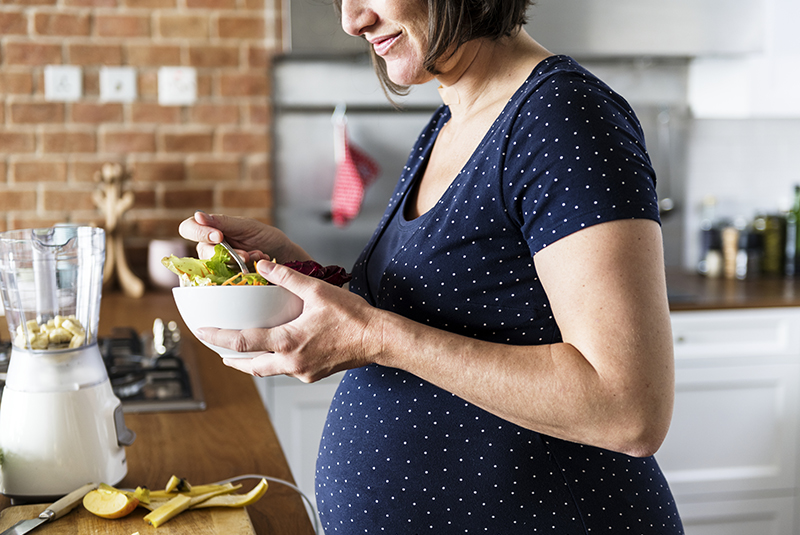
Growing a baby can work up an appetite – so it’s tempting to sit down with a tub of ice-cream and a spoon at the end of the day. Pregnancy can bring about a whole range of weird and wonderful cravings, but a healthy and balanced diet is especially important if you’re pregnant or planning a pregnancy.
Healthy eating ensures you and your baby receive the essential nutrients required for optimal growth and development. You can achieve this by ensuring you eat a wide variety of nutritious foods and include adequate amounts of the main food groups: fruit and vegetables; breads and cereals; dairy; and lean meats, chicken and fish.
We’ve all heard the expression ‘you’re eating for two’ but there’s no need to do this as only a small amount of extra kilojoules is required. You do, however, need to eat more variety.
The Kids Dietitian Sarah Whalan says pregnancy creates extra demand for several nutrients.
“Folic acid, iron and iodine are particularly important during pregnancy,” she says.
“In addition to a healthy diet, taking a multivitamin will ensure you are getting enough of the essential vitamins and minerals.”
If you’re looking for quick, nutritious ideas for meals and snacks, Sarah suggests the following ideas:
- banana sandwiches
- eggs or peanut butter on wholegrain toast
- baked beans
- tuna on salad or wholegrain toast
- a milkshake or fruit smoothie (without raw eggs)
Importantly, there’s also foods which Sarah explains should be avoided.
“Throughout pregnancy you should avoid foods that may contain Listeria, including soft white cheeses like brie and feta, pâté, oysters, pre-packed salads and soft serve ice cream.
“Raw eggs should also be avoided as they may contain Salmonella. Smoothies, mayonnaise or desserts like mousse may contain raw eggs.
“Large amounts of caffeine may make it difficult to become pregnant and may increase the risk of miscarriage or of having a baby with low birth weight.
“No alcohol during pregnancy is also the safest option. Alcohol consumption in pregnancy is associated with an increased risk of miscarriage, stillbirth, premature birth and babies born with fetal alcohol spectrum disorder.
To learn more about nutrition, head to our nutrition research topic page.
